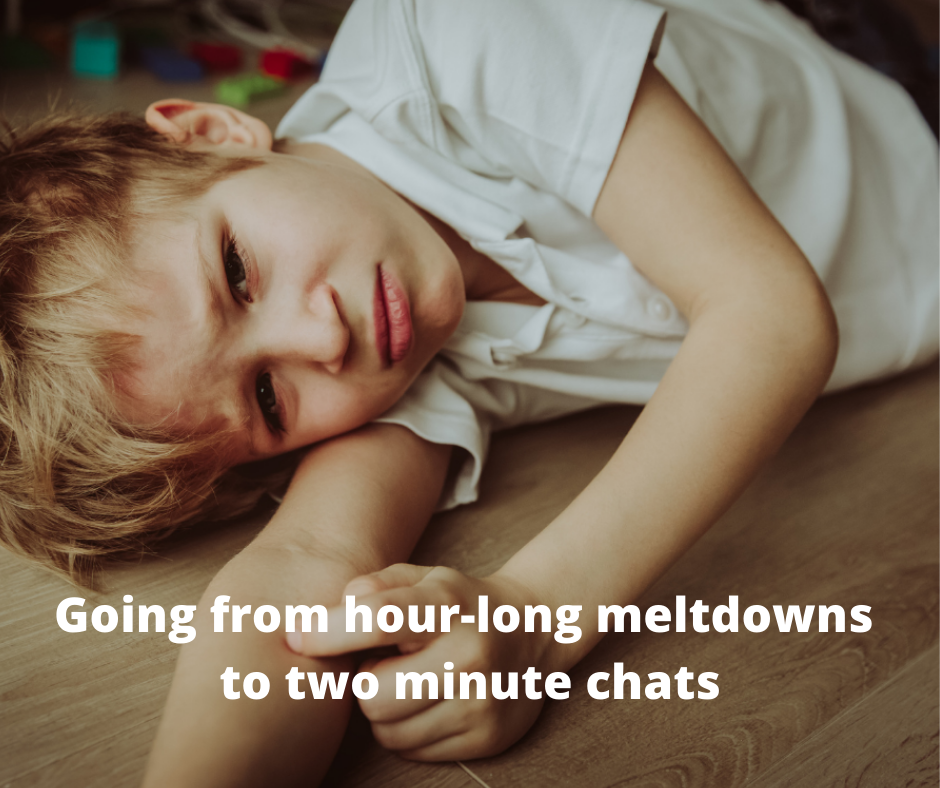
My son was five when I first learnt how I could use my own attitude to reduce his stress. When in meltdown-mode, he would be highly stressed but I found if he could look at me and see that I felt OK, confident, comfortable and that I knew exactly how to help him, he would gradually realise he could come to me for all the comfort and support he needed. This would lead to a gradual build-up of trust which would lead to him turning to me and not away to find his comfort.
I needed to become that person for him – which would be to all our benefit. If I learned to choose not to become stressed and to feel OK in myself when he was in a high-level meltdown, it would only help him.
I needed to show him that I loved him completely, that I was there for him unconditionally and that when he came out the other side, he would find all the fun and good emotions that he might need.
When he wasn’t stressed, I chose to build the best relationship with him that I could, so that he could start to experience good emotions – happy feelings, fun, silliness, and a relaxed state that he started to prefer. This meant that when he was in a state of meltdown he could start to choose to come out of it sooners as he preferred the emotions and togetherness that were out on the other side of it.
When he realised he could have fun with me, could really trust me and had learnt to access really good emotions, that’s when I noticed he could start to come out of meltdowns and stressed states quicker.
I started doing this when he was five and up to the age of nine his meltdowns could still last for an hour – but by the age of eleven he didn’t have meltdowns anymore. We could resolve issues with just two-minute chats. He could reason in every way. At fourteen he was so easy-going that he would joke ‘anything for you’ if I asked him to do something for me and now at seventeen he has internalised all this and is largely able to have this relaxed attitude with himself and others.
I didn’t need to rely on systems to do this – I didn’t need appointments with CAMHS or special therapists. I could do it myself – with parent-power! It was a great feeling to know I could use my own knowledge and attitude to help my son to become meltdown free.
If you find this interesting and want to learn more about how to help your child with parent power, please go to my coaching resource page, where you will find further information about the video series I created regarding my child’s development.
Sally Wagter, author of Miracle in Slow Motion
Recent Comments